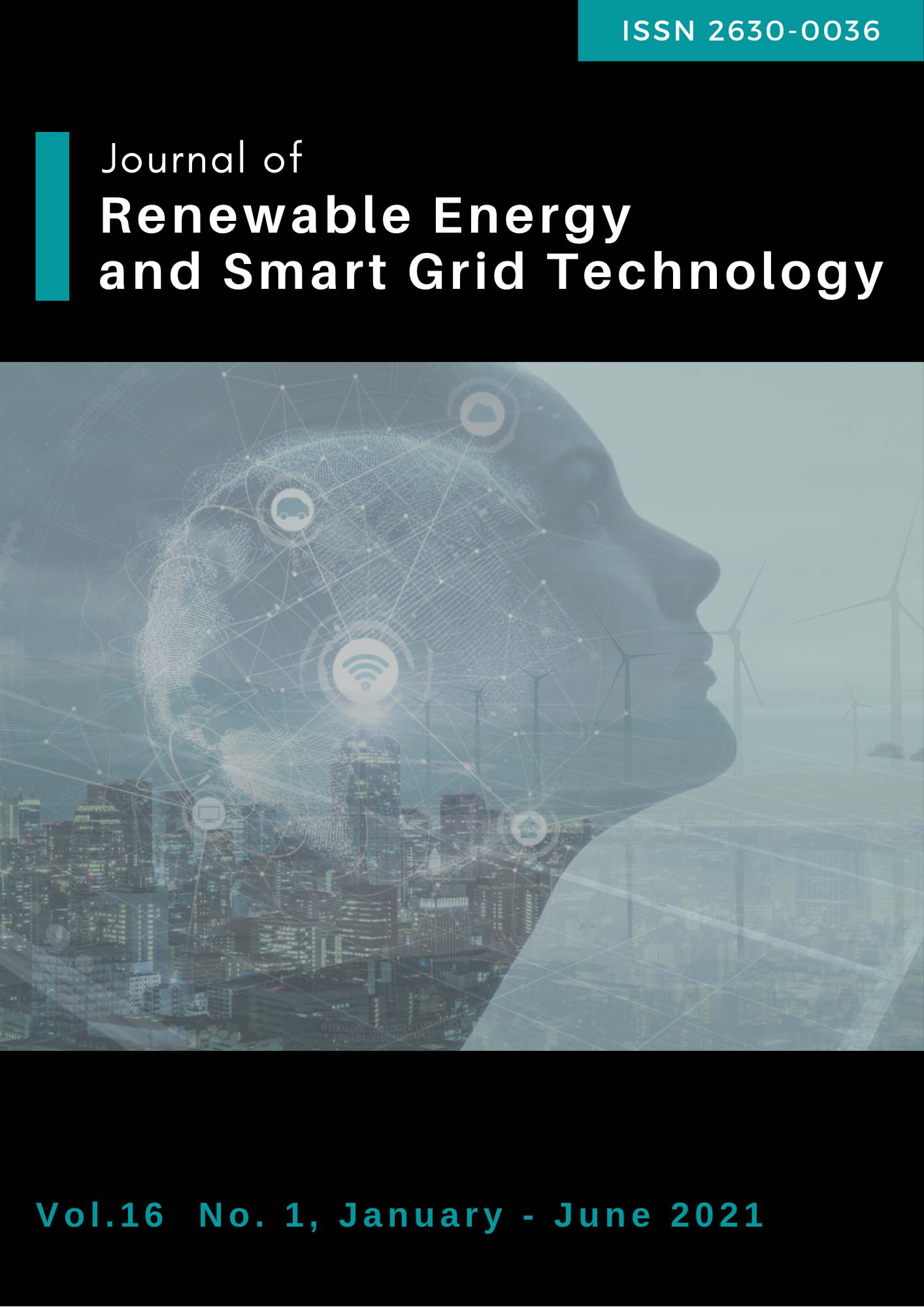The Development of Criteria and Indicators for Energy Management of Educational Institutions with the Energy Management System
Keywords:
School Energy Management, Criteria and Indicator, Energy Audit, Energy EfficiencyAbstract
Improving energy efficiency in school buildings provides environmental, economical, and educational benefits. It is therefore important for school administrators to achieve energy efficiency through effective energy management. The objectives of this research were to develop the criteria and indicators used as the guidelines for school administrators in energy management and conservation, and to assess their energy performances. In doing so, 12 experts were surveyed for opinions in energy management and the results were applied to develop the criteria and indicators. A training course was then specifically conducted for the representatives of small, medium and large-sized schools in order to build awareness and improve their energy performances. After the training, the assessment was conducted by energy auditors from the ISO 50001 accredited agencies. The results were composed of 9 criteria and 25 indicators. The assessment results on efficiency of quality management by the auditors revealed that the energy management efficiency of the 3 institutions was at a high level and could be incorporated in other projects and their electricity consumption was reduced of 35.40%, 24.17% and 6.05% in large, medium and small schools respectively. The satisfaction assessment results of the schools on the implementation of the criteria and indicators were at high level. The findings illustrated that school administrators are the key success for implementing and improving energy efficiency in the schools. They need to work collaboratively with the others according to the PDCA cycle for the continuous energy performance improvements.
References
Energy Policy and Planning Office. (2014). Energy policy. Bangkok, Energy Policy and Planning Office, Ministry of energy.
Energy Policy and Planning Office. (2011). Thailand 20-year energy efficiency development plan. Bangkok, Energy Policy and Planning Office, Ministry of energy.
Energy policy and planning office. (2014). Situation of Energy and Electricity Consumption in Thailand in 2014. Bangkok, Energy policy and planning office, Ministry of energy.
Ministry of Energy. (2017). Energy policy Thailand 4.0. Bangkok, Ministry of Energy.
Department of alternative energy development and efficiency. (2020). Alternative energy development plan. Bangkok, Department of alternative energy development and efficiency, Ministry of energy.
Salleh, M. N. M., Kandar, M. Z., & Sakip, S. R. M. (2016). Benchmarking for energy efficiency on
school building design: A review. Procedia – Social and Behavioral Sciences, 222, 211-218.
Rittikrirkkrai, R. (2003). Energy management system organization. Energy World Journal, 6(18), 35-46.
Ministry of Energy, Strategy and Planning Division. (2017). The promotion of energy teaching and learning in the basic project. Bangkok, Ministry of Energy.
Department of alternative energy development and efficiency. (2020). Energy volunteer project 2020. Bangkok, Department of alternative energy development and efficiency, Ministry of Energy.
Bureau of policy and strategy, office of the permanent secretary. (2020). Ministry of education strategic plan 2020. Bangkok, Ministry of Education.
The Secondary Education Service Area Office 12. (2012). Educational quality development plan 2012. Nakhon Sri Thammarat, The Secondary Education Service Area Office 12.
Amatvanich, N., & Wirunrat, B. (2017). New model of alternative energy project indicators. Thai journal Humanities Social Sciences and Arts, 10(2), 2603-2606.
Metropolitan Electricity Authority. (2015). Assessment form for the operation of energy and environment conservation in schools Academic Year 2015. Bangkok, Metropolitan Electricity.
Department of Alternative Energy Development and Efficiency. (2018). Documentation guide contest Thailand the energy awards 2018. Bangkok, Department of Alternative Energy Development and Efficiency, Ministry of Energy.
International Organization for Standardization. (2018). ISO 50001: 2018 Energy management systems: Requirements with guidance for use. Retrieved January 27, 2021, from https://www.iso.org
Energy Policy and Planning Office. (2017). Strategic Energy Plan. Bangkok, Energy Policy and Planning Office, Ministry of Energy.
Prashar, A. (2017). Adopting PDCA (Plan-Do-Check-Act) cycle for energy optimization in energy-intensive SMEs. Journal of Cleaner Production, 5(14), 77–93.
Javied, T., Rackow, T., & Franke, J. (2015). Implementing energy management system to
increase energy efficiency in manufacturing companies. Procedia CIRP, 6(12), 56– 61.
Nallagownden, P., Elamvazuthi, I., & Ibrahim, T. (2014). A review on optimized control systems
for building energy and comfort management of smart sustainable buildings. Renewable and
Sustainable Energy Reviews, 6(34), 409-429.
Luanpasitsakul, T. (2019). The characteristics of basic education school administrator in accordance
with education goal of Thailand 4.0 (Doctoral dissertation). Bangkok, Silpakorn University.
Downloads
Published
How to Cite
Issue
Section
License
All copyrights of the above manuscript, including rights to publish in any media, are transferred to the SGtech.
The authors retain the following rights;
1. All proprietary rights other than copyright.
2. Re-use of all or part of the above manuscript in their work.
3. Reproduction of the above manuscript for author’s personal use or for company/institution use provided that
(a) prior permission of SGtech is obtained,
(b) the source and SGtech copyright notice are indicated, and
(c) the copies are not offered for sale.










